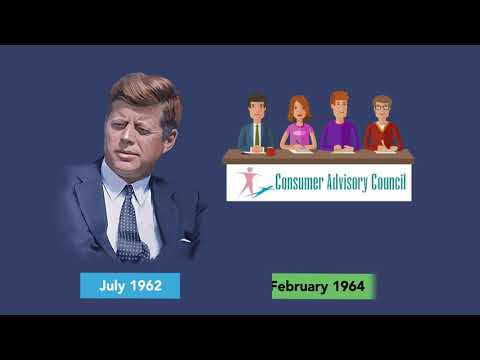
Understanding Consumer Protection Law in New York State: A Comprehensive Overview
Dear reader,
Welcome to this informative article on understanding consumer protection law in New York State. In this comprehensive overview, we aim to provide you with a detailed understanding of the laws that protect consumers in the great state of New York.
📋 Content in this article
It is important to note that while we strive to provide accurate and up-to-date information, laws can change and vary over time. Therefore, it is always advisable to cross-reference the information presented here with other reliable sources or consult with legal advisors for specific cases or concerns.
Now, let’s delve into the world of consumer protection law in New York State. We’ll explore key concepts, rights, and remedies that are in place to safeguard consumers like yourself from unfair practices, deceptive advertising, and other potential harms.
Consumer Protection Law: An Overview
Consumer protection laws are designed to ensure fairness, transparency, and honesty in transactions between consumers and businesses. These laws aim to protect individuals from unscrupulous practices that could result in financial loss or harm. In New York State, consumer protection is governed by both state and federal laws.
Key Rights of Consumers
As a consumer in New York State, you have certain rights that are protected by law. These rights include:
Understanding Consumer Protection Law in New York State
Understanding Consumer Protection Law in New York State: A Comprehensive Overview
In today’s complex marketplace, it is crucial for consumers to be aware of their rights and protections. Consumer protection laws serve as a safeguard against unfair and deceptive practices by businesses. New York State has implemented a robust framework of laws and regulations to ensure the well-being of its consumers. This article seeks to provide a comprehensive overview of consumer protection law in New York State.
What is Consumer Protection Law?
Consumer protection law is a branch of law that focuses on promoting fair business practices and protecting individuals from fraudulent and deceptive practices in the marketplace. It aims to level the playing field between businesses and consumers by empowering consumers with legal rights and remedies.
The Role of Consumer Protection Agencies
In New York State, consumer protection is primarily enforced by the New York State Attorney General’s Office, which has a dedicated Bureau of Consumer Frauds and Protection. This agency plays a crucial role in investigating and prosecuting violations of consumer protection laws.
Key Consumer Protection Laws in New York State
1.
2.
3.
4.
5.
Understanding Consumer Protection Laws in the United States: An In-depth Explanation
Understanding Consumer Protection Laws in the United States: An In-depth Explanation
Introduction:
Consumer protection laws in the United States are designed to safeguard the rights and interests of consumers. These laws aim to ensure fair business practices, protect consumers from fraud and deceptive practices, and promote healthy competition in the marketplace. In this article, we will provide an in-depth explanation of consumer protection laws in the United States, with a specific focus on understanding consumer protection law in New York State.
1. The Scope of Consumer Protection Laws:
Consumer protection laws cover a wide range of areas, including but not limited to:
2. Federal Consumer Protection Laws:
In the United States, consumer protection laws are primarily enforced at both the federal and state levels. At the federal level, several key agencies play a crucial role in enforcing these laws:
a. Federal Trade Commission (FTC): The FTC is responsible for enforcing federal consumer protection laws. It investigates unfair or deceptive business practices, enforces truth-in-advertising laws, and protects consumers from scams and fraud.
b. Consumer Product Safety Commission (CPSC): The CPSC regulates the safety of consumer products, including toys, household appliances, electronics, and more. It sets safety standards and recalls unsafe products.
c. Consumer Financial Protection Bureau (CFPB): The CFPB oversees and
Title: Understanding Consumer Protection Law in New York State: A Comprehensive Overview
Introduction:
Consumer protection law plays a crucial role in safeguarding the rights and interests of consumers in New York State. As a responsible citizen, it is essential to have a comprehensive understanding of the laws designed to protect consumers. This article aims to provide an informative overview of consumer protection law in New York State, highlighting its importance and emphasizing the need to stay updated on this topic. It is important to note that while every effort has been made to ensure accuracy, readers are encouraged to verify and cross-reference the content provided due to the ever-evolving nature of the law.
I. The Purpose of Consumer Protection Law:
Consumer protection laws are enacted to promote fair trade practices, prevent fraudulent activities, and protect consumers from deceptive business practices. These laws serve as a shield against unscrupulous businesses, ensuring that consumers are treated fairly and their rights are upheld.
II. New York State Consumer Protection Laws:
New York State has established a comprehensive framework of consumer protection laws that cover various aspects of consumer transactions. Some key areas covered by these laws include:
a. Advertising and Marketing:
Consumer protection laws in New York State prohibit false or misleading advertising practices. Businesses are required to provide accurate information about their products or services, refrain from deceptive pricing strategies, and clearly disclose any terms or conditions.
b. Product Safety:
Strict regulations are in place to ensure the safety of products sold in New York State. These regulations cover a wide range of products, from children’s toys to household appliances. Manufacturers and sellers are responsible for ensuring product safety and are liable for any harm caused by defective or dangerous products.
c. Consumer Contracts:
Consumer protection laws govern the terms and conditions of consumer contracts, aiming to prevent unfair contract terms or clauses that may harm consumers’ rights. These laws require businesses to provide clear and understandable contracts, disclose all relevant information, and protect consumers from hidden charges or fees.
d.
